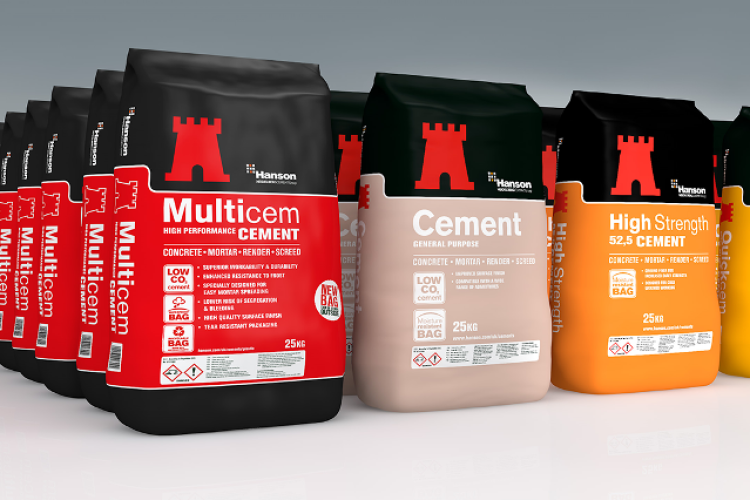The projects will demonstrate the potential of hydrogen and plasma technologies to reduce carbon emissions through fuel switching from fossil fuels in cement and lime production.
The demonstration projects follow feasibility study in 2019 that found that a combination of 70% biomass, 20% hydrogen and 10% plasma energy could be used to eliminate fossil fuel CO₂ emissions from cement manufacturing. This theory is now being put to the test.
The cement trials will take place at sites operated by Tarmac and Hanson Cement. The cement production trial comprises two demonstrations, one of electrical plasma energy and biomass fuel and the other of hydrogen and biomass energy.
If shown to be technically and financially viable, this kind fuel switching could yield emissions savings of as much as two million tonnes of carbon dioxide per year at 2018 production rates, if fully implemented across the UK cement industry, the MPA said. This equates to 0.6% of 2018 UK greenhouse gas emissions.
UK cement manufacturers have already invested millions of pounds in fuel switching from coal and petcoke to the use of waste biomass and waste part biomass fuels. However, 83% of the thermal input required to manufacture clinker still arises from fossil energy (whether virgin fossil fuels or waste from non-biomass origin) and there are CO2 emissions associated with this.
The UK lime production trials will take place at a site operated by Tarmac – demonstrating the applicability of hydrogen as an alternative to natural gas for lime manufacturing.
Natural gas is the preferred fuel for lime production as it introduces few impurities and is readily available. There are currently no examples of replacement gaseous fuels for natural gas that would ensure the quality of the high calcium lime product required in the UK.

Issues to be addressed to convert lime kilns to hydrogen include:
- Gas density/calorific value, combustion stoichiometry, and flame speed and temperature and the impact on kiln performance and product quality.
- NOx, other emissions to air and exhaust gas moisture content, including the formation of emission products in the kiln, and the impact on emissions control systems.
- The long-term embrittlement and degradation of materials in kiln systems, including damage to refractories.
The results of both projects will be shared with the wider industries and supply chains.
The projects, funded by the Department for Business, Energy &Industrial Strategy (BEIS), are forecast to be completed by the end of March 2021.
MPA director Richard Leese said: “This fuel switching research is truly ground-breaking for the cement and lime industries. Our members have made huge strides in reducing carbon emissions by using waste derived and biomass fuels, and this research will be a cutting-edge demonstration of how it could be possible to operate cement and lime kilns with a ‘net zero’ fuel mix. This could be a significant step change in emissions reduction with global deployment potential.”
Mike Eberlin, managing director of Tarmac’s cement & lime business, said: “Securing this funding is an extremely positive step for our industry as we support the UK’s ambition of achieving net-zero carbon emissions by 2050. Collaborative working and embracing innovative technologies are key in our collective efforts to create a lower carbon, resilient built environment and we’re proud to be involved in such an important project which will help inform industry and government strategic plans on decarbonisation.”
Hanson UK chief executive Simon Willis said: “Cutting carbon emissions is a key priority for us at Hanson and our parent company Heidelberg Cement Group is the first in the industry to commit to producing carbon-neutral concrete by 2050 at the latest. These BEIS-funded research projects could represent a significant step change in supporting the UK government’s sustainable development goals as it responds to climate change.”
Got a story? Email news@theconstructionindex.co.uk



